Related Research Articles

The Metropolitan Opera is an American opera company based in New York City, currently resident at the Metropolitan Opera House at Lincoln Center, situated on the Upper West Side of Manhattan. The company is operated by the non-profit Metropolitan Opera Association, with Peter Gelb as general manager. As of 2018, the company's current music director is Yannick Nézet-Séguin.

Einstein on the Beach is an opera in four acts composed by Philip Glass and directed by theatrical producer Robert Wilson, who also collaborated with Glass on the work's libretto. The opera eschews traditional narrative in favor of a formalist approach based on structured spaces laid out by Wilson in a series of storyboards which are framed and connected by five "knee plays" or intermezzos. The music was written "in the spring, summer and fall of 1975." Glass recounts the collaborative process: "I put [Wilson’s notebook of sketches] on the piano and composed each section like a portrait of the drawing before me. The score was begun in the spring of 1975 and completed by the following November, and those drawings were before me all the time."

Mary Violet Leontyne Price is an American spinto soprano who was the first African American soprano to receive international acclaim. From 1961 she began a long association with the Metropolitan Opera, where she was the first African American to be a leading performer. She regularly appeared at the world's major opera houses, including the Royal Opera House, San Francisco Opera, Lyric Opera of Chicago, and La Scala; at La Scala, she was also the first African American to sing a leading role. She was particularly renowned for her performances of the title role in Verdi's Aida.

The New York City Opera (NYCO) is an American opera company located in Manhattan in New York City. The company has been active from 1943 through its 2013 bankruptcy, and again since 2016 when it was revived.
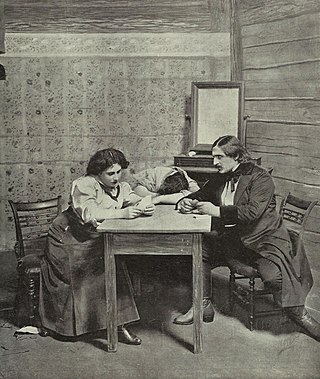
La fanciulla del West is an opera in three acts by Giacomo Puccini to an Italian libretto by Guelfo Civinini and Carlo Zangarini, based on the 1905 play The Girl of the Golden West by the American author David Belasco. Fanciulla followed Madama Butterfly, which was also based on a Belasco play. The opera has fewer of the show-stopping highlights that characterize Puccini's other works, but is admired for its impressive orchestration and for a score that is more melodically integrated than is typical of his previous work. Fanciulla displays influences from composers Claude Debussy and Richard Strauss, without being in any way imitative. Similarities between the libretto and the work of Richard Wagner have also been found though some attribute this more to the original plot of the play, and have asserted that the opera remains quintessentially Italian.

John Nicholas Maw was a British composer. Among his works are the operas The Rising of the Moon (1970) and Sophie's Choice (2002).
Vittorio Giannini was an American neoromantic composer of operas, songs, symphonies, and band works.

Jake Heggie is an American composer of opera, vocal, orchestral, and chamber music. He is best known for his operas and art songs as well as for his collaborations with internationally renowned performers and writers.

Antony and Cleopatra, Op. 40, is an opera in three acts by American composer Samuel Barber. The libretto was prepared by Franco Zeffirelli. It was based on the play Antony and Cleopatra by William Shakespeare and made use of Shakespeare's language exclusively.
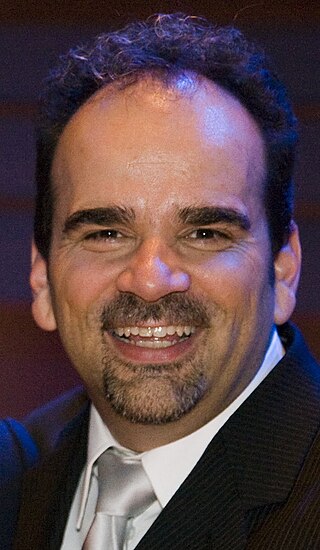
John Estacio is a contemporary Canadian composer of opera, orchestral and choral music.
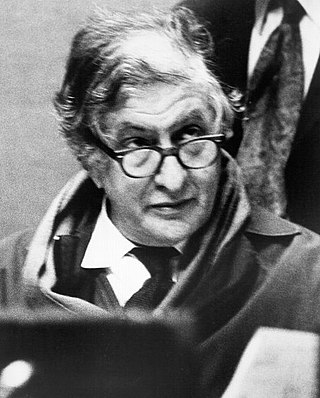
Wuthering Heights is the sole opera written by Bernard Herrmann. He worked on it from 1943 to 1951. It is cast in a prologue, 4 acts, and an epilogue that repeats the music of the prologue. The opera was recorded in full by the composer in 1966, but it had to wait until April 2011, the centenary of the composer's birth, for a complete theatrical performance.
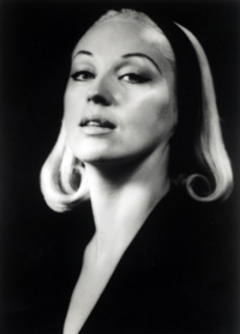
Klara Barlow was an American opera singer who had an active international career from the mid-1960s through the 1990s. A dramatic soprano, Barlow particularly excelled in portraying Strauss and Wagnerian heroines. The 5-foot-11-inch-tall "platinum-blonde beauty" was ideal for playing the "Wagnerian blondes": roles like Elsa, Eva, Sieglinde, and Elisabeth. Although she worked most often in the German repertoire, Barlow also sang roles from the Italian, French, and Czech repertories. While her performance credits included leading roles at most of the world's major opera houses, she never achieved a high level of international fame. She did not participate in any commercial audio recordings, although her voice is preserved on a few television and radio broadcasts made in Germany, Canada, and the United States.
The Stronger is an opera in one act by composer Hugo Weisgall. The English language libretto by Richard Henry Hart is based on August Strindberg's 1889 play of the same name. It premiered at the White Barn Theatre in Westport, Connecticut on August 9, 1952 and was dedicated to that theatre's founder, the actress Lucille Lortel.
David Michael Schuster is an American spinto tenor.

Amelia al ballo is a one-act opera buffa by Gian Carlo Menotti, who set his own Italian libretto. Composed during 1936 when Menotti was in his mid-twenties, it was the composer's first mature opera and first critical success. The opera recounts a series of farcical events as a young Italian socialite overcomes obstacles to her attendance at the first ball of the season.
Odaline de la Martinez is a Cuban-American composer and conductor, currently residing in the UK. She is the artistic director of Lontano, a London-based contemporary music ensemble which she co-founded in 1976 with New Zealander flautist Ingrid Culliford, and was the first woman to conduct at the BBC Promenade Concerts in 1984. As well as frequent appearances as a guest conductor with leading orchestras throughout Great Britain, including all the BBC orchestras, she has conducted several leading ensembles around the world, including the Ensemble 2e2m in Paris; the New Zealand Symphony Orchestra; the Australian Youth Orchestra; the OFUNAM and the Camerata of the Americas in Mexico; and the Vancouver Chamber Orchestra. She is also known as a broadcaster for BBC Radio and Television and has recorded extensively for several labels.
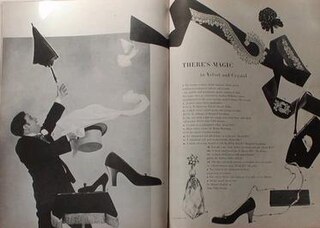
Andrew McKinley was an American operatic tenor, violinist, arts administrator, music educator, and school administrator. Although he mainly performed in the United States, he had an active international singing career with major opera companies and symphony orchestras from the 1940s through the 1960s. His repertoire spanned a wide range, from leading tenor parts to character roles.
Frank Porretta Jr. was an American tenor who had an active career performing in operas, musicals, and concerts from 1952 through 1971. He had a particularly fruitful relationship with the New York City Opera from 1956 to 1970 where he sang a highly diverse repertoire; including roles in new operas by composers Norman Dello Joio, Carlisle Floyd, Vittorio Giannini, and Robert Ward. For the NBC Opera Theatre he portrayed The Astronaut in the world premiere of Gian Carlo Menotti's Labyrinth.
The Taming of the Shrew is an opera in three acts by composer Vittorio Giannini. The work uses an English language libretto by Dorothy Fee and the composer which is based on William Shakespeare's play of the same name. The opera premiered at the Cincinnati Music Hall on January 31, 1953 in a concert performance starring Dorothy Short as Katharina, Robert Kircher as Petruchio, the Cincinnati Symphony Orchestra, and conductor Thor Johnson. Considered Giannini's most popular work, it was one of three finalists named for the Pulitzer Prize for Music in 1953.
The Devil and Daniel Webster is a folk opera in one act by American composer Douglas Moore. The opera's English-language libretto was written by Stephen Vincent Benét who also penned the 1936 short story of the same name upon which the work is based. Composed from 1937 through 1939, it premiered on Broadway at the Martin Beck Theatre on 18 May 1939. The first opera by Moore to achieve wide success, it has remained a part of the opera repertory. Containing spoken words as well as sung material, Martin Bookspan stated that "the opera is really a 20th-century American singspiel, with extensive stretches of dialogue alternating with the musical numbers." The opera is set in 1840s New Hampshire within the fictional town of Cross Corners. Described as an "American Faust" for its similarities to the German tale with an American milieu, the opera tells the story of the farmer Jabez Stone who sells his soul to the devil. When the devil comes to collect his soul he is thwarted by the statesman Daniel Webster whose clever tongue outmaneuvers him.
References
Notes
Sources
- Eaton, Quaintance (1961). Opera Production. University of Minnesota Press. ISBN 0816602492
- Holland, Bernard (28 February 1991)."A Giannini Rarity for Radio Done on Concert Stage". The New York Times . Retrieved 24 September 2012.
- Simmons, Walter (2004). Voices in the Wilderness: Six American Neo-Romantic Composers. Scarecrow Press. ISBN 0810848848